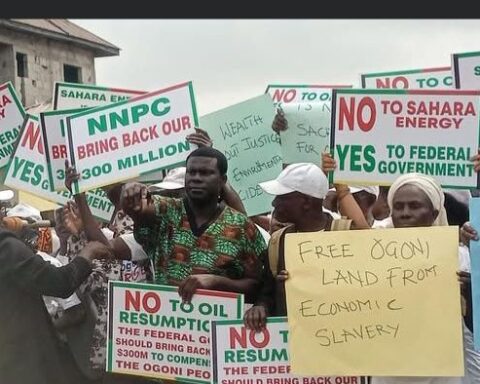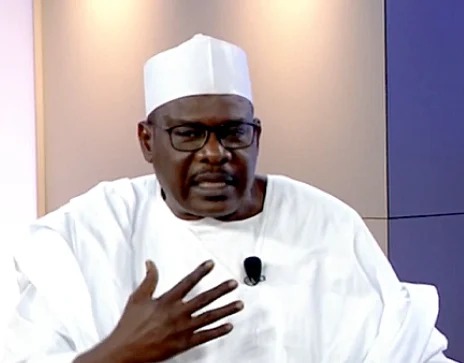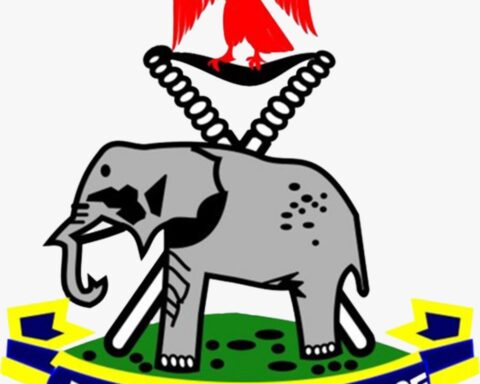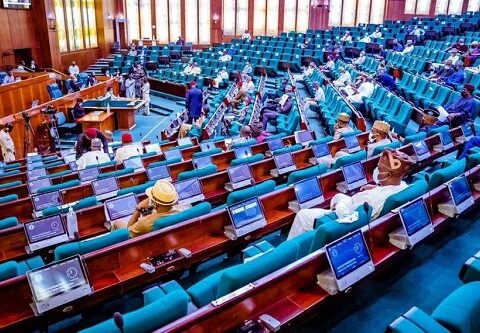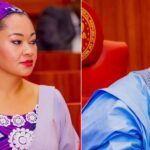Former Governor of Edo State, Sen. Adams Oshiomhole, has publicly sought forgiveness from Chief Gabriel Igbinedion, the Esama of Benin, for any past wrongs during his tenure as Governor.
In a goodwill message at the banquet celebrating Igbinedion’s 90th birthday on Saturday (yesterday, Sept. 14) in Benin, Oshiomhole described Igbinedion as “a good father,” praising the elder statesman’s contributions to society and taking the opportunity to seek atonement.
He said, “You brought together people from all parts of the country; North, South, East, and West and across political and religious divides.”
Oshiomhole publicly recognized the crucial support he received from Igbinedion during his political career.
“I want to publicly acknowledge your support for me in 2007 and 2008, without which I might never have become the governor of Edo State,” the former National Chairman of the All Progressives Congress (APC), said.
He also expressed gratitude for the advice and guidance Igbinedion provided, both known and unknown to him, over the years.
“As a Catholic, I want to confess that I might have done some things I shouldn’t have done as governor. At 90, it is only right that I ask for your forgiveness for any of my actions that may have irritated you.”
He compared Igbinedion’s vast influence and large number of supporters to a parent with many children, some of whom inevitably cause frustration.
“That is the challenge of having too many children; you have tall ones, short ones, big ones, and small ones.
And the small one turned out to be one of those that caused you harm.”
He continued, “I have always looked for one opportunity to say to the Esama of the universe that I am sorry for any of the things that I said knowingly or unknowingly or any of the things that I did that a son should never have done to a father. On your 90th birthday, I ask for your forgiveness, and I pray that you grant it.”
He lightheartedly reflected on parenthood, stating, “The only way to avoid children doing things you don’t like is not to have any. But with as many children as God has blessed you with, some are bound to irritate you. Even I that have six children, sometimes I wonder why they do the things that I do not approve of. Having said that, I am believing that you have forgiven me, and I feel now able to reunite and hug my own brother, Lucky Igbinedion.”
He also lauded the Esama’s visionary leadership in establishing Nigeria’s first private university and other ventures that had brought the country international recognition.
However, while Oshiomhole may not have had direct “sins” against the nonagenarian himself, his rivalry with Lucky Igbinedion, the Esama’s son, was a key source of political tension.
Oshiomhole’s tenure as Governor of Edo State from 2008 to 2016 was marked by a significant political rivalry with Lucky Igbinedion, his predecessor and two-term Governor from 1999 to 2007.
This rivalry likely included actions that some viewed as political missteps or “sins” against Igbinedion.
For instance, upon assuming office, Oshiomhole embarked on a public campaign to expose the alleged financial mismanagement and corruption that occurred during Lucky Igbinedion’s administration.
He accused Igbinedion of leaving the state in financial ruins due to the misappropriation of public funds and widespread corruption.
This open criticism likely embittered Igbinedion and his political allies, as Oshiomhole not only called for investigations but also vowed to recover public funds allegedly stolen under Igbinedion’s leadership.
Such allegations tarnished the legacy of the former Governor and escalated tensions between both political figures.
Oshiomhole’s administration encouraged anti-corruption agencies, including the Economic and Financial Crimes Commission (EFCC), to investigate Igbinedion.
During Oshiomhole’s tenure, several charges were brought against Igbinedion, and his family faced legal scrutiny over financial crimes.
The active role Oshiomhole played in encouraging investigations and prosecutions could be seen as a personal attack by the Igbinedion camp, probably perceived as a calculated political move to further discredit Igbinedion’s standing within Edo politics.
Oshiomhole was also often vocal in comparing his administration’s achievements with the alleged failures of Igbinedion’s time in office.
He frequently highlighted how infrastructure projects that were abandoned or poorly executed under Igbinedion were completed under his administration.
He also accused the Igbinedion government of gross inefficiency in governance and alleged that much of the state’s funds were siphoned off for private use.
Oshiomhole’s consistent portrayal of his government as a corrective one, “cleaning up the mess left by Igbinedion,” highlighted a sharp contrast between the two men’s tenures and leadership styles.

